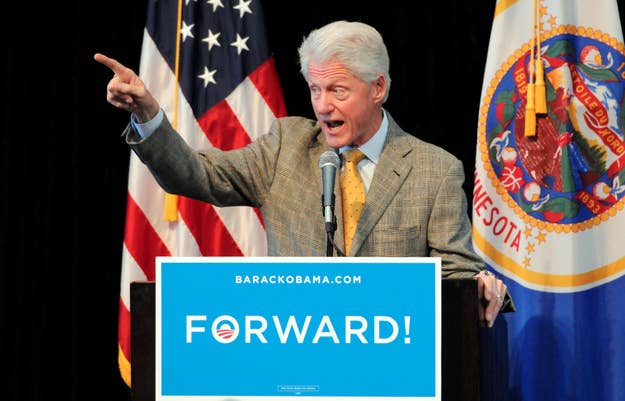
On his MSNBC show Tuesday morning, Chuck Todd made an explicit link between Hurricane Sandy and climate change. It was perhaps the most public and firm mainstream media assertion this week that the storm — which pummeled the East Coast Monday evening, claiming 50 lives and billions in damage — is widely viewed by scientists as linked to global warming.
"Folks, second year in a row the New York metro area has been by this stuff," said Todd, NBC News's Chief White House Correspondent and host of The Daily Rundown on MSNBC. "Let's not bury our heads in the sand when it comes to something has changed in the Atlantic. The climate has changed. It's called climate change, folks."
Earlier in the show — in a panel discussion with analysts Perry Bacon and Anita Dunn — Todd wondered whether Sandy could bring climate change back into the conversation. "I don't think it does. It's very late politically," Bacon responded, adding that "we as a press have not covered this huge issue in the way we should have."
Despite 24-hour rolling television news coverage of the storm, Todd is among the few reporters to mention global warming in connection to Sandy, though the written media — particularly the New York Times has explored the question at some length. In the last seven days, the storm has been mentioned in direct reference to climate change in just two network news segments, and in only 14 cable news stories.
In a lead-in Tuesday night to a Robert Bazell report on the NBC Nightly News, Brian Williams made a passing reference. "A storm like this has a way of making you ask questions like, what's happening to our world and our weather? And yes, people are raising global warming already," said Williams.
But some environmental activists see coverage from reporters like Todd and Williams — however cursory — as a way to push climate change back into the political conversation.
"Sandy has forced climate change into the election despite the continuing silence on this urgent global and economic security threat from the two candidates," said Brad Johnson of Forecast the Facts.
Johnson, pointing to the Nightly News segment and other climate change reports by Chris Hayes and Rachel Maddow, said NBC's storm coverage "has stood head and shoulders above the rest of the networks."
Kalee Kreider, who worked for six years as an environmental advisor and communications director for Vice President Al Gore, added that Sandy has presented "the opportunity for the mainstream science to be discussed."
"There was a time, not long ago when discussion of scientific facts of climate change was not a surprise — even by news anchors," said Kreider. "Perhaps what's happening is a righting of the ship, so to speak."
Kreider added that climate change was not mentioned at the presidential debates this year — a first since 1988. "Without a doubt, climate change is missing from the conversation," Kreider said.
Bill McKibben, author and environmentalist, suggested that if Sandy hadn't run straight through the political media's two epicenters — New York City and Washington, DC — climate change wouldn't be getting the same attention.
"Epic flooding in Pakistan or Bangkok or Manila was not enough to wake up our journalists," said McKibben, "but when the surge of water comes straight at the media capital of our home planet, it may really make a difference."
But even if reporters like Chuck Todd are edging climate change back into the political narrative, the politicians themselves are not — with less than a week until the election, both President Obama and Mitt Romney have avoided the topic.
Former president Bill Clinton, stumping for Obama in Minnesota on Tuesday, is the only campaign figure who's gotten close.
"[Romney] ridiculed the president for his efforts to fight global warming in economically beneficial ways. He said, 'Oh, you're going to turn back the seas,'" said Clinton, speaking at the University of Minnesota. "In my part of America, we would like it if someone could've done that yesterday."
